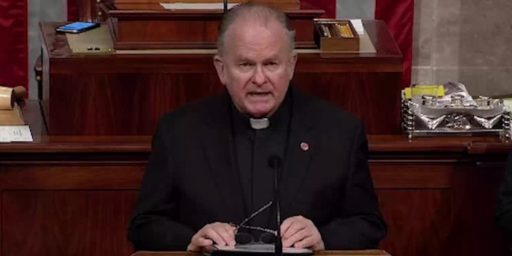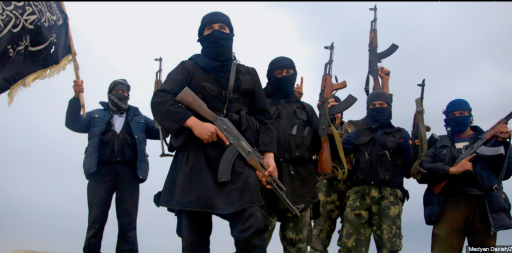PENTAGON TO CHANGE CHAPLAIN POLICY
NYT reports changes will come as a result of recent scandals involving Muslim clerics:
Neither military or civilian authorities have brought formal charges against Captain Yee, but after his arrest the Pentagon says it has begun a review of the admittedly ad hoc process it has used for years to select and train chaplains of all faiths.
Whether the chaplains are Christian or Jewish, Muslim or Buddhist, the military relies on religious groups themselves to recommend and to educate their own candidates. The military says that because of the constitutional provisions that govern the division of church and state, only churches and religious organizations can ordain or appoint their own clergy.
With Muslim chaplains, however, this has proved particularly problematic, especially since Islam has no centralized hierarchy. Most other faiths and denominations have a single authority responsible for chaplains, like the Roman Catholic Archdiocese for the Military Services. But in the absence of such an equivalent Islamic authority, the military has relied on grass-roots Muslim groups.
“Because of the separation of church and state, and the decentralized nature of Islam, we are dependent on loosely affiliated Islamic groups to certify the credentials of Muslim clergy in order for them to apply to be chaplains in the military,” the Pentagon said in a statement.
After more than 10 years of accepting the recommendations of Muslim groups, the military says it will now re-evaluate the requirements for individual chaplains and the religious groups that nominate chaplain candidates to the military.
***
Two senators — Charles E. Schumer, Democrat of New York, and Jon Kyl, Republican of Arizona — have begun a Senate investigation into how the government chooses Muslim clerics, or imams. Mr. Schumer has been saying for at least six months that the Muslim groups now responsible for choosing and training chaplains are all affiliated with a militant form of Islam popular in Saudi Arabia that some call Wahhabism.
“The people who believe in Islam should have a right to a chaplain of their own religion,” Mr. Schumer said in an interview. “But what the military has done is taken a narrow, fundamentalist and extreme band of the spectrum and said those groups have a monopoly on who becomes an imam in the military.”
***
The first Muslim chaplain was commissioned in the Army in 1993, and there are still only 12 in the American armed forces — seven in the Army, three in the Navy and two in the Air Force, the Pentagon says.
Frankly, I’m surprised the ACLU hasn’t won a suit challenging the presence of taxpayer funded religion in the armed forces as a violation of the Establishment Clause. But, aside from the issue of whether their should be uniformed chaplains (I actually think there should, for a variety of reasons), the idea that all faiths are equally likely to contain terrorist infiltrators strikes me as patently silly.
Sure, Catholic priests might be problematic for other reasons, but since all soldiers are over 18, they’re relatively safe. Episcopalian bishops might be of concern were it not for Don’t Ask, Don’t Tell. But that’s a whole ‘nother story.






Since the military works hard to represent all recognized religions I am not sure the ACLU would have a case anyway let alone a winnable one.
For one thing, the very idea of a “recognized religion” violates the whole premise of the Establishment Clause. Instead of establishing a single religion, it just establishes an acceptable range of them–basically, those that follow the Judaic god. Plus, the military is funding churches and paying clerics with taxpayer money. Now, granted, we fund chaplains for both Houses of Congress, too. But this certainly wouldn’t be permissible in the public schools.
I don’t know if this has ever been challenged. The only rationale I could see that would be of any merit is the standard military exceptionalism argument: the military gets a wide berth around the Bill of Rights with regard to its members if they can make a good justiciation in terms of good order and discipline.
And, while I’m generally no fan of religion, let alone taxpayer funded religion, I think we can indeed justify military chaplains on public policy grounds. Spiritual guidance and the other functions performed by chaplains are actually rather important, especially during long deployments and/or combat.
There was controversy a few years ago because the Army was allegedly subcontracting a Wicca clergyperson to provide services in an isolated area of Ft. Hood.
Fort Hood Wiccans article